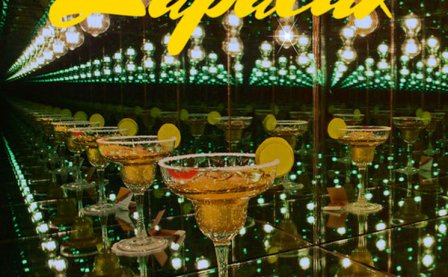Let me propose two very different models of contemporaneity. The first is from Terry Smith, art historian and author of What Is Contemporary Art?, in an essay from 2006 (PDF link). “Contemporaneity,” Smith writes, “consists precisely in the constant experience of radical disjunctures of perception, mismatching ways of seeing and valuing the same world, in the actual coincidence of asynchronous temporalities, in the jostling contingency of various cultural and social multiplicities, all thrown together in ways that highlight the fast-growing inequalities within and between them.”
Sonically, this is a version of the contemporary most obviously embodied in the music of James Ferraro and Daniel Lopatin. Both artists have embraced the values enumerated by Smith not only within individual works (Far Side Virtual, Replica), but between their many and “disjunctive” projects too (The Skaters, BODYGUARD, the Ferraro of Night Dolls with Hairspray on the one hand; 0PN, Ford and Lopatin, Sunset Corp on the other). These are artists, in other words, whose “nowness” consists precisely in (1) their concern with earlier periods of music-making and (2) their insistence on multiplicity and divergence as their primary modus operandi.
Well, UK producer Lapalux’s third EP (his first on Flying Lotus’ Brainfeeder imprint) is contemporary in a totally different way. It’s a product of the kind of incremental modernism advocated by Adam Harper in his recent manifesto-like Infinite Music: Imagining the Next Millennium of Human Music-Making, a book that insists only on ‘sufficient novelty’ in contemporary music rather than great Reynoldsian leaps into the future.
When You’re Gone is contemporary in precisely this sense. It’s not groundbreaking exactly, but in terms of the recent aesthetics that it so expertly gathers together and distills, it still manages to sound genuinely fresh. More than any other record I’ve heard so far in 2012, When You’re Gone sounds like it could only have been released this year. It’s contemporaneity consists in the fact that it’s unmistakably of the Now. This isn’t tomorrow’s music, in other words; it’s today’s.
The hiss and crackle, the loungey keys, the half-heard voices and distant lasers that open the record situate it immediately within that post-Burial continuum of melancholic UK night music. “102 Hours of Introductions” is a delicate and soulful ode to unrequited love (“I’ve waited so long. Give your love to me baby”): exactly the kind of thing I could imagine consoling myself with as a I trudged home at 2 AM through the languid London rain.
Throughout When You’re Gone, the beats lope along somewhere between the wonky stutterings of Hudson Mohawke and the mournful post-dubstep of a James Blake or Mount Kimbie. The vocals (Py’s fabulous effort on “Moments” is deserving of special mention) are all treated beautifully: chopped and tweaked and layered and pitched and screwed in all the right places: as hip and contemporary an example of so-called ‘vocal science’ as you could imagine. And throughout, there’s a taught and glossy maximalism that sets this particular brand of bass- and beat-oriented music in direct counterpoint — an antidote perhaps — to the rigorous lo-fi muddiness of the ever-ascendant hipster house.
Interesting, because this crisp, crystalline quality to the production is arguably in counterpoint to the real melancholia that pervades the record too. In fact, this is where When You’re Gone really gets it right. Unlike the sentimentality of certain tracks on the blubsteppier end of the continuum, this is a record with real soul. It’s perfectly poised between glistening pop escapism and languorous gloom. The title given to one of the record’s standout tracks captures it perfectly: “Gutter Glitter.” This is an EP that manages to find a certain somber consolation in what can often feel like an incredibly doleful present.
Indeed, you might say that When You’re Gone is contemporary in that sense too. What Lapalux manages to do here is capture something of the mood of his time in the sonic language of his time. It’s a real achievement.
More about: Lapalux




